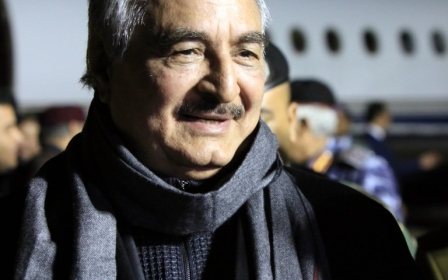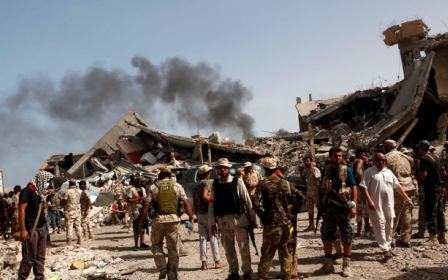Libya's unity government leader meets renegade general Haftar

The head of Libya's UN-backed unity government on Tuesday held a rare meeting with a military strongman who supports a rival authority in the violence-wracked country, official media said.
Fayez al-Sarraj and Khalifa Haftar met face-to-face in Abu Dhabi, the LANA news agency said, for only the second time since Sarraj was named prime minister-designate in late 2015.
Sarraj and Haftar met "thanks to international and Arab mediation", according to LANA, which is loyal to the parliament based in eastern Libya, after a first meeting in January last year.
Libyan television broadcaster 218 reported that the two held talks "in private" after posing for a photograph together.
Political rivalry and fighting between militias have hampered Libya's efforts to recover from the chaos that followed the 2011 uprising that toppled and killed longtime dictator Moamer Kadhafi.
Haftar, who backs an administration based in the far east of the country, has refused to recognise the authority of the UN-backed Government of National Accord since it started working in Tripoli in March last year.
In February, Sarraj said Haftar had refused to meet him in person in Cairo for Egypt-backed talks to discuss possible amendments to a UN-backed agreement signed in late 2015 that gave birth to the fragile unity government.
That deal gave no role in Libya's future to Haftar, whose forces control much of the country's east.
But Haftar, the head of the self-styled Libyan National Army, has since established himself as a key player, especially after seizing the country's key oil terminals in September.
New MEE newsletter: Jerusalem Dispatch
Sign up to get the latest insights and analysis on Israel-Palestine, alongside Turkey Unpacked and other MEE newsletters
Middle East Eye delivers independent and unrivalled coverage and analysis of the Middle East, North Africa and beyond. To learn more about republishing this content and the associated fees, please fill out this form. More about MEE can be found here.




